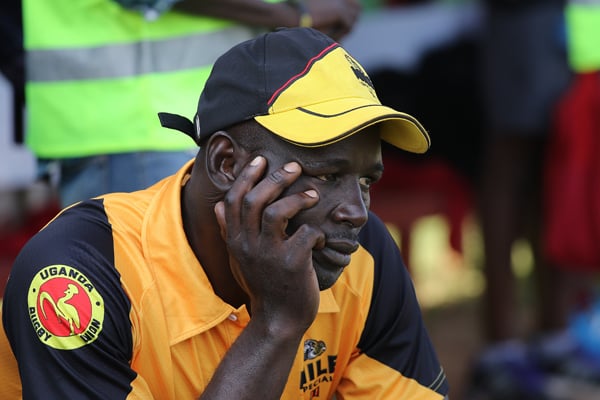Rest with the angels, Robert Sseguya

Author, Mr Moses Banturaki. PHOTO/FILE.
What you need to know:
- It wasn’t so much in the physical sense as it was in this almost contagious passion that convinced one that Soggy didn’t do rugby out of a sense of duty. The man loved what he did, and 20 years on the job is testimony to that. Rugby has lost a pillar.
The man had been ailing since May and despite all the best efforts of the Rugby fraternity few people, if at all, ever emerge from a beating handed out by stage four cancer. And cancers are of varying degrees of deadliness, but none more lethal than Leukemia. He was doomed. And so it was that on Tuesday, December 14, Ugandan Rugby legend Robert Sseguya, aka Soggy, lost the battle and his life to Leukemia.
Apart from seeing him play or coach every time I visited Kyadondo Rugby Club for a game or other things, I didn’t really know the man at a personal level. But even from an arms-length there was something large about him.
It wasn’t so much in the physical sense as it was in this almost contagious passion that convinced one that Soggy didn’t do rugby out of a sense of duty. The man loved what he did, and 20 years on the job is testimony to that. Rugby has lost a pillar.
In the weeks that follow, statements will be made; social media posts changed; narrations revised; and a book or two might even be written. Pity will spread throughout Uganda like a pandemic. Not everybody will catch it, but most will be made aware of it, and most will in some way be affected by it, all of us united in sorrow.
The sadness will feel raw, though Soggy’s death represents nothing new. The lived experience of sportsmen in Uganda remains punishing and unrelenting. Many sportsmen never get back half of what they put into the game. Even those who move on into coaching roles like Soggy, live and die like paupers. The industry may make them national celebrities, but it hardly puts bread on their tables. And like Soggy discovered, one is always a medical emergency away from disaster.
So Soggy’s passing is sad and shocking but the nature of how he passes is not. The sad impoverished ending of our heroes is commonplace. Not long-ago Jimmy Kirunda collapsed and died in the midday sun by a highway because an ambulance could not reach him fast enough.
Before him Magid Musisi, who spent a life-time wowing thousands of football fans in Uganda, France and Turkey, died in a shack in Bwaise surrounded by nothingness.
After a lifetime of underpayment, the industry just doesn’t offer any kind of social security. Period.
But how can we sit and wallow in self pity as the evidence of the plight of our sporting heroes continue to show up in mortuaries year upon year?
These problems that spark our grief and the solutions that might solve them continue to stare at us from beyond the dark glasses we use to hide our shame at their funerals. Yet all we do is grieve. How then can we claim to be saddened by Soggy’s passing without appearing to be hypocrites?
Soggy might have been a man who took rugby and personalised it for decades. He is arguably Uganda’s foremost rugby personality, if not pioneer celebrity. Now that he is gone, local rugby might have changed forever.
But so must our mindsets. It is about time we realized that outpouring of grief is nothing unless it is propped up by institutional and political will to address longstanding lack of social support for our sportsmen.
That would be the best way to honor Soggy and others departed. There shall be no better way to preserve his legacy than using his passing as the turning point in our efforts to ensure those that come after don’t suffer the same pathetic fate.
Rest in Peace Soggy.
Email: [email protected]
Twitter: @MBanturaki



